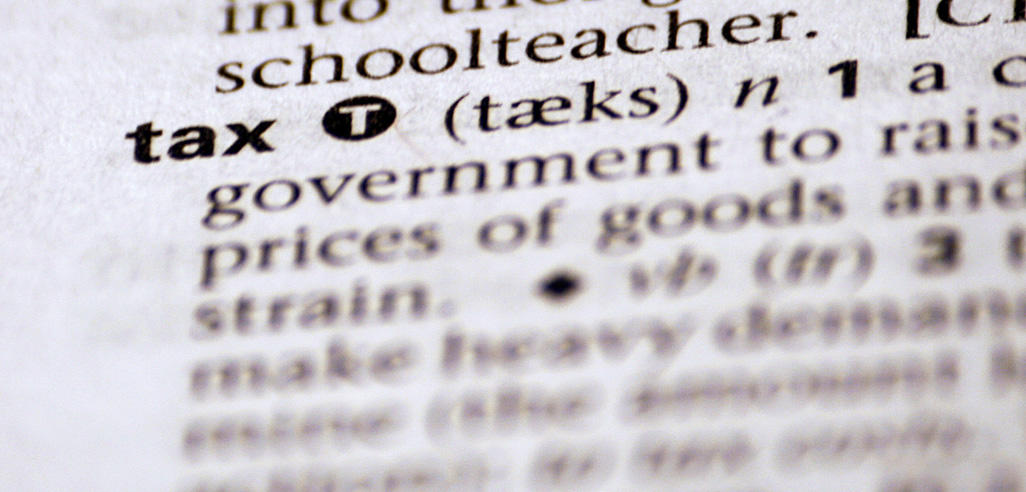Do private tutors need to pay tax? Anyone working as a private tutor in the UK, whether full-time or part-time, must understand how they're taxed. Private tutoring tax rules in the UK mean that most tutors need to register as self-employed, keep financial records, and submit their annual Self Assessment tax return to HMRC. Here, we'll look at what you need to know and what your obligations are.
Want to give private lessons?
Join the Superprof community and share your knowledge with interested and motivated students.
Why Private Tutors in the UK Need to Know the Tax Rules
It has been estimated that the number of private tutors in the UK has risen to over a million in recent years. This is something that was only accelerated with the increased demand and changed perceptions around online learning. This made tutoring jobs one of the most popular professions in Britain, especially for former teachers.
The demand for private tutors today is the highest it has ever been, with tutors available for various subjects and skills with varying qualifications and experience. Due to this popularity, the home tutoring profession and private tutoring incomes are being monitored more closely than ever by the UK Internal Revenue Office, HM Revenue & Customs (HMRC).
In becoming a private tutor, you are classed as a self-employed tutor or self-employed sole trader. Working as a sole trader entails specific responsibilities, including adhering to tax laws and promptly reporting your earnings to HMRC. This is referred to as a tax return and can be completed online.
This guide aims to leave you with some actionable tax tips, answer the questions that tutors frequently ask when starting their business, and show you everything you need to do to record your income and file a tax return for the 2024/25 tax year!
How do I Register as a Self-Employed Tutor?
Okay, so before you start lining your pockets with the money you’ve earned from providing your tutoring services to students, you’ll need to set some aside so that you can pay your taxes when the day finally rolls around.
To declare your income and pay your taxes, you’ll need to register as a self-employed tutor here in the UK.
The kind of work that you register for will depend on your situation and whether you are working on the side of your full-time job or if it’s your primary source of income.

As a sole trader, you must complete a self-assessment tax return every year after the 31st of January, which you can do online. You must do this even if you are also employed elsewhere, as this can change how much you have taxed all of your employment.
To understand where you're at when it comes to the type of work you are doing and how you should be registering your income, you can make use of the HMRC’s Employment Status Indicator tool, which will cast some light on your position.
Once you've worked out your employment status, you can start registering as a self-employed trader with HMRC. If you are trying to get ahead of things for this year's tax year, then you’ll need to declare your status by 5 October 2025!
With that said, the sooner you can complete this step, the better, as it’s recommended that you register within three months of commencing work. The process takes some time, and you cannot report your earnings until you are officially registered with HMRC.
You don't usually pay the tax until the following January. This may seem friendly, but you'll be hit with a double tax bill at this time and to legally work as a private tutor, you'll have to pay it! That's because HMRC likes to take a biannual payment on account for subsequent years, and your first tax bill coincides with the first payment on account for the following year. Your payments on account are estimates and can be negotiated with HMRC.
Some tutoring companies operate on a Pay-as-You-Earn (PAYE) basis, acting as a middleman between the tutor and the student. If you work for an agency with PAYE, your work will likely be taxed at source, so there will be no paperwork for you to deal with. This usually means you will also pay a small payroll fee. You can also efficiently compute the payroll tax on your own.
You’ll want to have your National Insurance Number (NIN) on hand when registering online, so if you don’t yet have one, you’ll need to apply for that before you can go any further with the process.
If you have been self-employed in the past, then you don't need to sweat about this, as you’ll already possess a Unique Taxpayer Reference (UTR) number. For the rest of you, the HMRC will dispatch one to you via post once you complete the registration form.
Want to give private lessons?
Join the Superprof community and share your knowledge with interested and motivated students.
When to Declare Tutoring Income
So, the next question that’s probably on your mind is when you should be declaring your tutoring income to HMRC. Well, this depends on how much you earn through your tutoring services and what employment status you’ve registered with.
You should be declaring your tutoring income if:
👧 Your Income is Greater than £1000 in 2024
🏡 You are Self-Employed and Not Working In a Tutoring School
✅ You Have Been Working as a Private Tutor for 3 Months +
Given the hourly rates associated with private tutoring, it probably won’t take all that long before your income exceeds the HMRC’s trading allowance of £1000.
This income allowance covers all your self-employed income, not just tutoring. So, if you make upward of this figure within a tax year from tutoring or any other self-employed work, then you'll probably have to report this on your tax return!
However, if you are only tutoring students here and there and your earnings do happen to fall below this threshold, then there's no requirement to inform HMRC or disclose any details.
| Date | Tax Event for 2024/2025 |
|---|---|
| April 6, 2024 | Start of the tax year |
| July 31, 2024 | Deadline for second payment on account for the tax year |
| October 5, 2024 | Deadline to register for Self Assessment if you started tutoring in the previous tax year |
| October 31, 2024 | Deadline for submitting paper tax returns for the tax year |
| January 31, 2025 | Deadline for online tax returns submission for the tax year |
| January 31, 2025 | Deadline for paying any tax owed for the tax year |
| January 31, 2025 | Deadline for first payment on account for the tax year |
| April 5, 2025 | End of the tax year |
Keep in mind that your employment status is going to be crucial when declaring your income (and for the type of insurance you get). If you are an online tutor giving most of your classes across the web or tutoring privately, then you’re seen as a contractor as opposed to an employee, meaning you're responsible for handling your taxes and will want to take some notes as you read.
How Do I Complete a Self-Assessment Form?
For a simple and easy self-assessment process, having all the necessary information you need for your circumstances is essential. To become a private tutor, you should keep records of your income and have all the relevant paperwork up to date to make this process as straightforward as possible.
For your self-assessment form, you will need the following:
- Records of your income and expenses
- If you are also employed, your PAYE earnings
- Any other income records, such as pensions, savings or investments
- A chequebook and a paying-in book
- Your P60
- Your bank statements or online banking access
You must complete a self-assessment form called SA100, available on the HMRC website. There are guidance notes available to help you fill out the form.
There are supplementary pages of the self-assessment form to fill out if you have more than one self-employed job. These will allow you to declare any earnings from other jobs you have as a sole trader.

This form can be completed by hand, posted, or submitted online. HMRC can send you the relevant forms for your circumstances, along with guidance notes to help you complete them. They can also be downloaded from their website.
If you complete the form online, you must register and log in to the HMRC website. You will then receive a password granting you access to the online forms. You will receive the password by post, which can sometimes take a couple of weeks, so leaving yourself plenty of time is a good idea.
When it comes to the 2024/25 tax year, your online submission deadline is midnight on 31 January 2026, the same deadline as for paying any tax you owe.
If you plan on submitting your tax return by post, then the deadline is 31 October 2025.2
When you're all set up and ready to start tutoring, read up on motivating your students and improving their learning.
Remember that you will also have to pay your National Insurance Contributions for the 2024/2025 tax year. There are two classes that you are likely to fall into as a self-employed private tutor: class 2 and class 4.
| NIC Type | Threshold (2025/26) | Rate/Amount |
|---|---|---|
| Class 2 | £6,845+ profits | £3.50 per week |
| Class 4 | £12,570–£50,270 | 6% of profits |
| Class 4 | Over £50,270 | 2% of profits above that threshold |
Class 2 NICs are payable at £3.50 per week by self-employed people whose taxable profits are more than £6,845 in 2025/26. 1
Then, along with the majority of those who are self-employed, you may also fall into Class 4 of National Insurance for the tax year 2025/26.
This is calculated at 6% on taxable profits between £12,570 and £50,270, and 2% on profits above £50,270 for the 2025/26 tax year. These payments are also collected at the same time as your income tax.4
See how you can start to teach English online.
How Can I Keep Records of What I Earn From Tutoring Jobs?
When you declare the income that you have made from offering your tutoring service throughout the year, you’ll need to keep accurate financial records.
How you choose to go about this is entirely up to you, as there are plenty of methods you can use. If you want your record to be in physical form, you can opt to keep your records stored away in a filing cabinet at home. If you don’t like the idea of cluttering your office space with reams of sheets, you can choose from a range of applications that will digitise your records.
You can also keep all of your tutoring income and any expenses on an Excel or Google Sheets spreadsheet as a means of tracking your income, and make sure to back up your records on the cloud to avoid any potential headaches down the line!
You can also keep a log of your expenses, including travel, advertising, books, stationery, insurance and home business use.
You’ll want to hold onto your receipts any time you make a business expense, as you may be entitled to some tax benefits, which might even provide a lucrative incentive for all of this work.

If you’re picking up any teaching supplies for your lessons or have some travel expenditures associated with your commute to a class, then these can be subtracted from your earnings.
Keeping clear, detailed and dated logs of what you earn is the best way to keep on top of your business and will help you fill out your self-assessment forms quicker and more easily.
Register
- Sign up as self-employed
- Get your UTR number
- Register by 5 October 2025
Record
- Track all tutoring income
- Log deductible expenses
- Save receipts digitally or on paper
Report
- Submit your Self Assessment return
- Meet the 31 Jan 2026 online deadline
- Pay any tax and NIC owed
While managing your tax might come with a bit of a learning curve, you have nothing to worry about once you stay compliant with HMRC regulations.
By following these steps and keeping on top of your financial management, you'll be able to shift your focus back to what really matters. You’re a tutor, after all, so you’ll want to spend more time helping your students achieve their goals than you are playing the role of an accountant.
Navigating how the new DBS checks replace CRBs becomes a whole lot easier after revising the key amendments.
What Tax Do I Pay if I Become a Tutor?
Most home tutors work alongside another job. If private tutoring is a supplement to your other employment, this will affect what you are taxed overall, as you are earning money from more than one job. Whatever you earn over your allowance is taxed across all of your employment.
Many tutors also work alongside their university studies. This usually means you are not earning as much as full-time tutors or tutors with other full-time employment, and you may not exceed your allowance.
If this is the case, you will not pay taxes on what you earn, but you must still declare what you earn to HMRC. You might be exempt from paying National Insurance altogether, depending on your earnings.
As a sole trader, you might also have to pay value-added tax (VAT). If you earn over a certain amount, you could be eligible to pay VAT for your services. In the 2025/26 tax year, the threshold for VAT registration in the UK remains at £90,000.2
Now you have a complete understanding of how to report the income earned from tutoring, learn more about obtaining DBS checks, the legalities of giving home tuition and the types of insurance you could invest in.
1. “Class 2 National Insurance – What’s Changing from April 2024?” The Association of Taxation Technicians. https://www.att.org.uk/technical/news/class-2-national-insurance-whats-changing-april-2024.
2. “Register for VAT.” GOV.UK. https://www.gov.uk/register-for-vat.
3. Service, Government Digital. “Pay Class 2 National Insurance If You Do Not Pay through Self Assessment.” GOV.UK, February 2, 2015. https://www.gov.uk/pay-class-2-national-insurance.
4. Forrest, Author Anita. “Calculate Class 4 National Insurance: 2024-25 Tax Year Guide.” Go Self Employed, April 17, 2024. https://goselfemployed.co/how-to-calculate-class-4-nics
Want to give private lessons?
Join the Superprof community and share your knowledge with interested and motivated students.
Summarise with AI:






Really use full information, thanks. FYI, it’s stationery, not stationary
Thanks Michele :)
I meant to give 5 out of 5
Thanks REALLY HELPFUL
James
This is wow!.l eventually and automatically love these.My God will bless you all sir/ma’s, tutors and administrators (Amen).Thanks a lot.
I need an advise as a Tutor
Advice is the noun, advise is the verb. Thus , you can’t say I need an adviSe. Better to say,’I need some adviCe’.
I am not a UK/EU national and do not reside in the UK anymore. Do I still have to declare taxes?
Quick question. If my students pay me for their acting exams, is this included as income or is this payment not taxable.
Hello, as a bookkeeper I am becoming increasingly aware of private tutors’ needs with regards self assessment, providing assistance with the process of registering with HMRC as a self employed individual, and for national insurance. I am an ICB qualified bookkeeper and can help with all aspects of the above and prepare and submit tax returns on your behalf. Please don’t hesitate to get in touch if you’d like any help with any of these matters, best wishes in your career, Vanessa John, Business In Balance Bookkeeping, MICB (my credentials can be checked via the ICB website, and references can be provided on request).